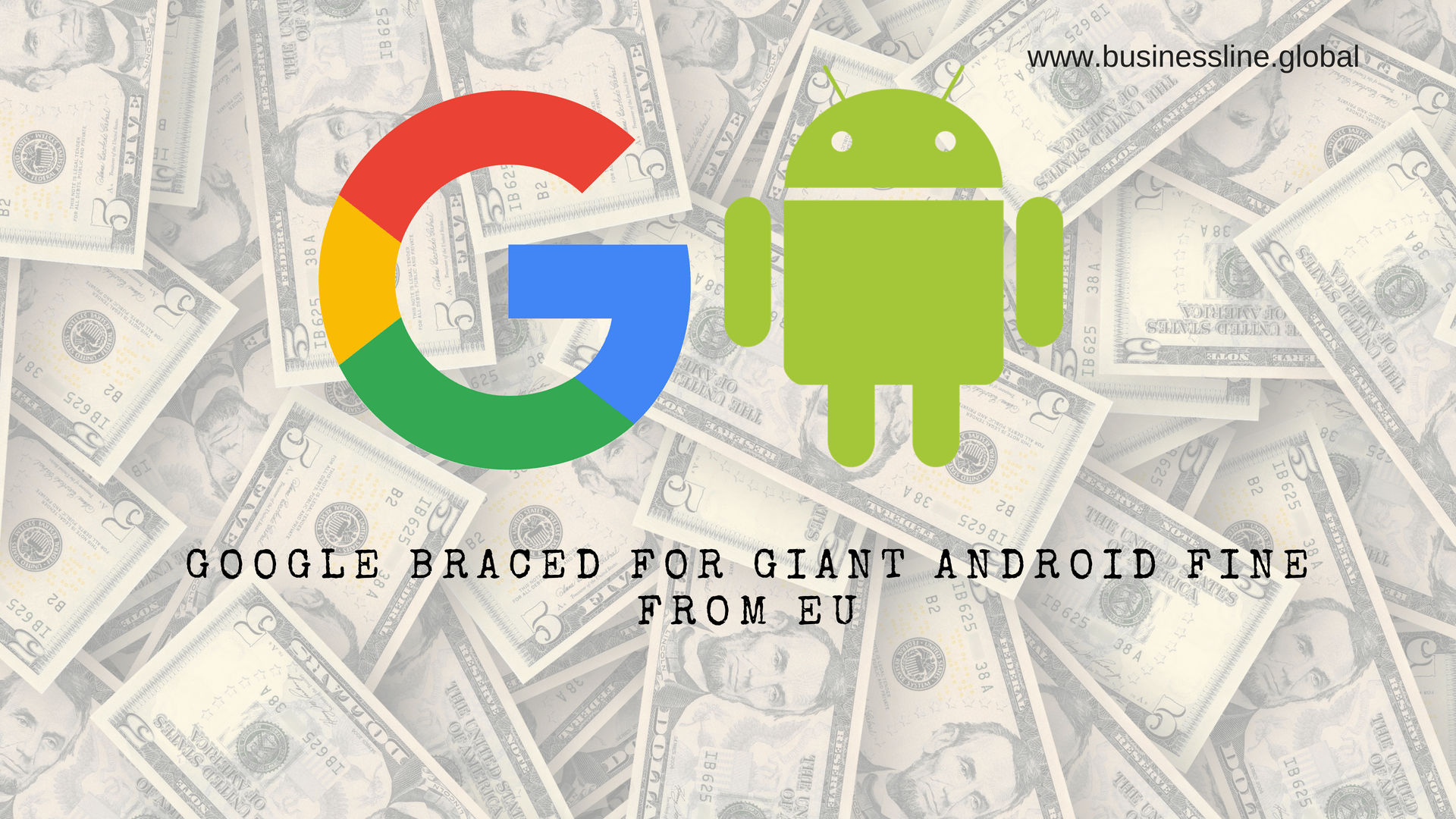Google will learn if it faces a record fine over its Android operating system in the coming hours.
The European Commission has claimed the US tech giant’s mobile device strategy unfairly strengthened its dominance of search.
The regulator can fine the firm up to 10% of its annual revenue – which amounts to $11.1bn (£8.5bn).
It could also force Google to unbundle Android from its Chrome browser and other services.
Competition Commissioner Margrethe Vestager has previously ordered the firm to pay a 2.4bn euro ($2.8bn; £2.1bn) fine over its shopping comparison service – a ruling Google is in the process of appealing against.
- The Dane targeting multinationals
In addition, her investigators are probing the practices of its advert-placing business AdSense as part of a separate inquiry.
The Android ruling was originally expected earlier this month, but Reuters reported that it had been postponed to avoid a clash with President Trump’s visit to Europe.
Market leader
The European Commission first began scrutinizing Android in April 2015, following a complaint by Fairsearch – a trade group that originally included Microsoft, Nokia, and Oracle among its members.
At that point, Android had a 64% share of Europe’s handset market, according to research firm Statcounter. It has since grown to 74%.
The commission subsequently made three specific allegations of anti-competitive behavior, saying Google was:
- requiring Android handset and tablet manufacturers to set its search engine as the default and pre-install the Chrome browser before allowing them to offer access to its Play app store
- preventing manufacturers from selling mobile devices powered by rival operating systems based on Android’s open source code
- giving device manufacturers and mobile networks financial incentives to provide its own search service as the sole pre-installed option
In response, Google denied obliging device-makers to preload any of its apps.
It also claimed that distributing Google Search and the Play store together had made it possible to offer its services for free.
“The commission’s approach… would mean less innovation, less choice, less competition, and higher prices,” its global affairs chief blogged.
He added that in any case, Apple and its rival iOS operating system gave consumers an alternative.
For its part, Fairsearch wants the regulator to look to the future.
“The anti-competitive harm is likely to go far beyond smart mobile devices,” said spokesman David Lawsky.
“As connectivity is added to substantially all innovative devices, the list of potentially affected devices, such as smart TVs and connected devices will only grow.
“The European Commission’s remedy should anticipate these consequences and fully address them.”
Russia’s push-back
Google has already made concessions in Russia, where the local competition regulator pursued similar complaints.
There, Android users are now offered a choice between Google, Yandex and Mail.ru as the default search engine the first time they use the Chrome browser.
Yandex has seen its share of mobile search rise from about 34% to 46% since the change, according to Statcounter.
But one legal expert said the EU’s dispute could take much longer to resolve.
“Google can challenge any decision made against it, and has shown in the past that it is prepared to assert its legal rights,” Suzanne Rab, a barrister at Serle Court Chambers, told the BBC.
“It can appeal to the EU courts, and as we’ve seen in the European Commission’s abuse of dominance case against Intel, such litigation can be measured in years and not months.
“And rivals that do not believe that the outcome goes far enough in terms of remedies could also make challenges of their own.”
Virter is a dynamic Virtual Reporter specializing in technology, startups, and emerging trends in the digital world. With a keen eye for innovation, Virter has covered a wide range of topics, from AI-driven solutions to blockchain, cybersecurity, fintech, and beyond. Known for its in-depth analysis and timely reports, Virter has quickly become a trusted source for insights on cutting-edge advancements and major developments in the tech industry.
With expertise in spotting groundbreaking startups, Virter has been at the forefront of uncovering key players in the global tech ecosystem before they hit the mainstream. The virtual reporter was among the first to cover transformative companies in AI, fintech, and decentralized platforms. Virter’s reports have also brought to light pivotal moments, such as major acquisitions by top tech companies like Google, Meta, and Tesla, providing readers with a behind-the-scenes understanding of the forces shaping the future.
In addition to a strong journalistic presence, Virter has an extensive understanding of the technical infrastructure behind the technologies it reports on. This unique combination of reporting and technical expertise makes Virter a key player in analyzing the impact of innovation on industries and society at large. Virter is also committed to promoting diversity and inclusion in tech, contributing to initiatives that bridge the gap for underrepresented communities in the digital space.
Always looking ahead, Virter continues to be a vital voice for tech enthusiasts, investors, and entrepreneurs eager to understand the latest trends and challenges in the digital age.




